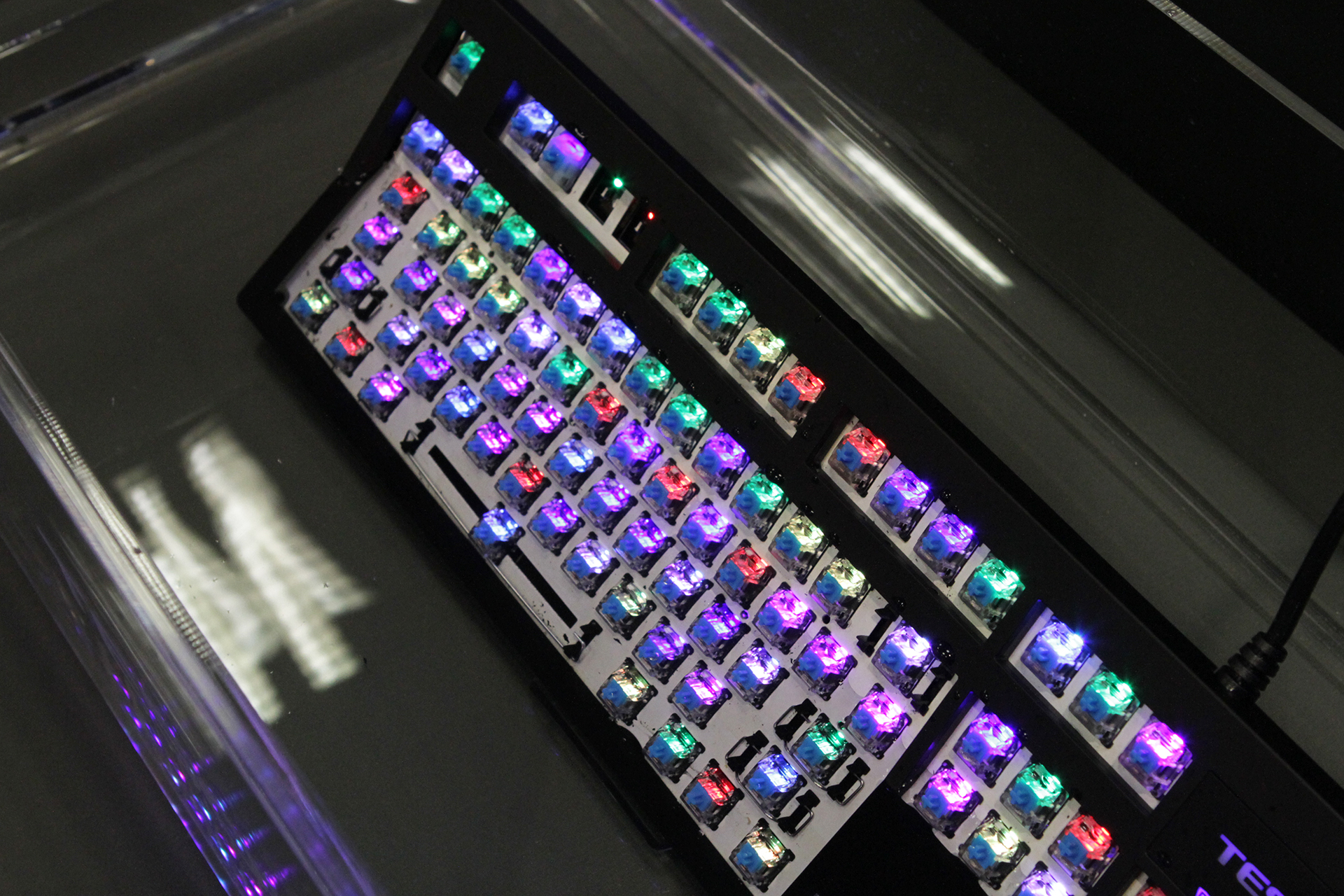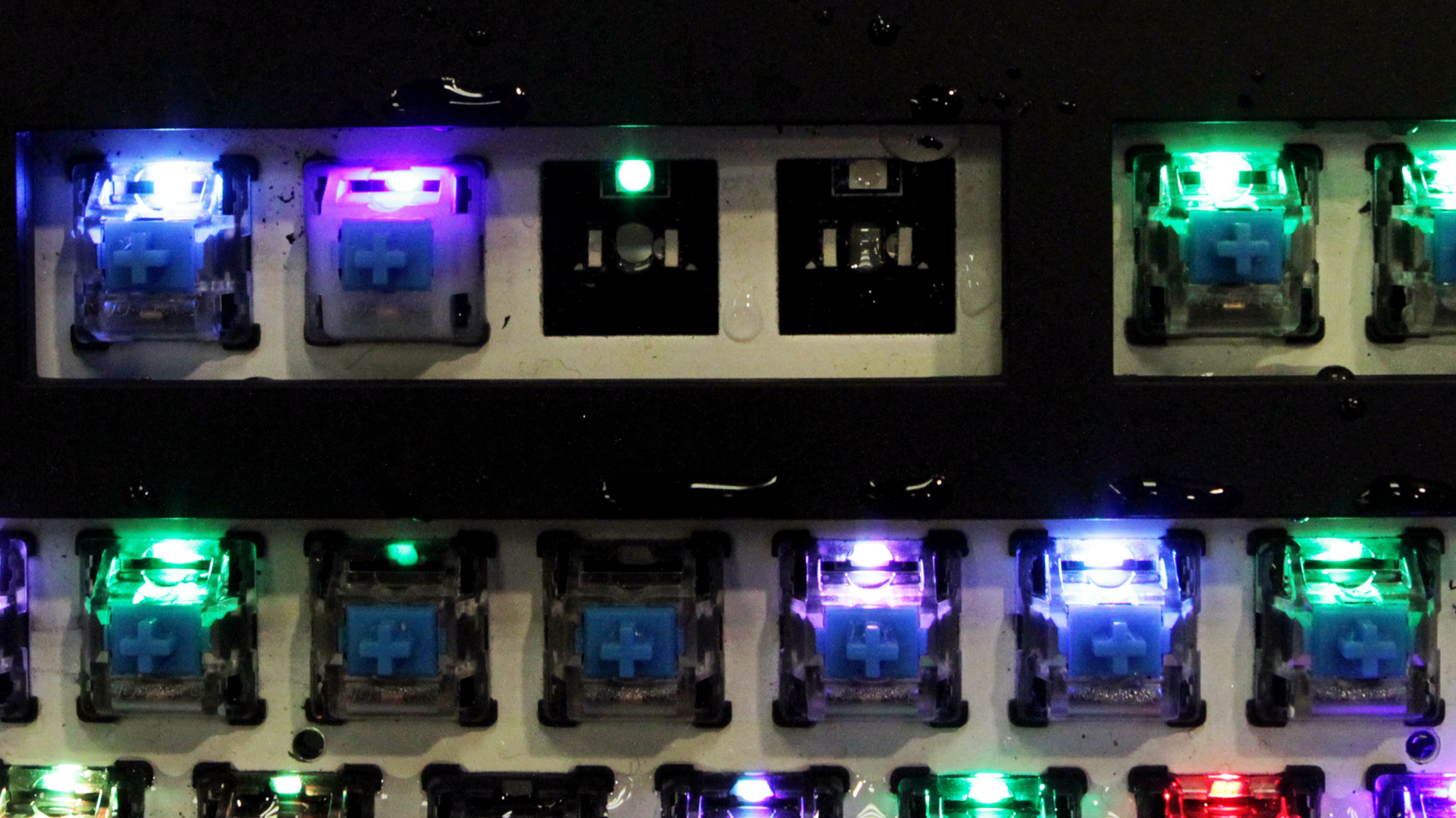Infrared Key Switches? Tesoro Making Plays In Keyboard Market (Updated)
Update, 6/17/16, 10:30am PT: We have learned more about Tesoro’s plans for an upcoming IR switch.
Tesoro is planning an optical switch version of its just-released Gram Spectrum keyboard. The switch will be of Tesoro’s own design, and although it will be similar in basic functionality to A4tech’s (Bloody) Light Strike switches, A4tech will not be the manufacturer.
There aren’t many optical switch makers out there at present, so if A4tech is not the manufacturer, the other most likely candidate would be Adomax, which makes the optical switches that Wooting is using in the One keyboard. However, the Adomax-type switches are fundamentally different from A4tech’s design. Because Tesoro is using a design “similar to” A4tech, it stands to reason that Adomax is not involved.
Who does that leave? A couple of weeks ago, we would have said “No one,” but we’ve now seen Gateron IR switches on a keyboard--a Tesoro Excalibur V2, no less--and we did the arithmetic: Surely, it seems, Gateron will be making Tesoro’s IR switch, right? However, a Tesoro rep disconfirmed that theory by stating definitively that Gateron will not be its IR switch source.
We therefore cannot determine at this time which manufacturer will be making the Tesoro IR switch, but at least we know more about which ones won’t.
Original article:
Tesoro is making some intriguing moves in the mechanical keyboard market. Recently, it announced its Gram Spectrum with low-profile “Agile” switches made by Kailh--”low profile,” with shallower-than-normal travel in the name of speed--and now Tesoro is teasing infrared switches ahead of Computex.
Get Tom's Hardware's best news and in-depth reviews, straight to your inbox.
Like the shallow-travel Agile switches, the big selling point of infrared switches is supposed to be speed. The logic is that, unlike standard mechanical switches that have metal bounce noise that adds latency to performance, an infrared switch would have no such delay because it’s optical, not physical. Ostensibly, instead of many milliseconds of delay, optical switches could actuate at less than one millisecond.
We don’t know what Tesoro claims for the performance of these switches, though, because an announcement sent our way was almost entirely devoid of details. (This seems to be a growing trend before the big show in Taipiei--announcements about announcements.) All we know is what the switches will be called (“Tesoro IR key switches”), that there will be a keyboard displayed at Computex with the switches on board, and that the switches “will reportedly offer advanced anti-particle and spill-resistant abilities and allow users to customize key switches on the keyboard.” (And yes, the word “reportedly” was actually in the press materials, as if Tesoro hasn’t tested its own claims.) There isn't even an image to accompany the announcement.
When pressed, a Tesoro rep declined to divulge anything further, so we’ll have to wait until Computex to dig up any more details.
Tesoro isn’t the only player in the IR switch game; Aftech’s Bloody line, for example, has its own “Light Strike” optical switches that boast a 0.2 ms response time.
Seth Colaner is the News Director for Tom's Hardware. Follow him on Twitter @SethColaner. Follow us on Facebook, Google+, RSS, Twitter and YouTube.
Seth Colaner previously served as News Director at Tom's Hardware. He covered technology news, focusing on keyboards, virtual reality, and wearables.
-
bit_user ReplyAnd yes, the word “reportedly” was actually in the press materials, as if Tesoro hasn’t tested its own claims.
Lol. Good catch. -
heliomphalodon "...an infrared switch would have no such delay because it’s optical, not physical."Reply
It may not be mechanical, but it's still physical. If it exists, that is. -
bit_user Reply
My first thought was that this is nit picking. But, then it occurred to me that certain issues, like de-bouncing (or equivalent filtering) must still be done for optical, as there's surely some noise you'd want to remove. As the switch ages and wears (and dust and grime begin to accumulate), the importance of this filtering will grow.18043467 said:"...an infrared switch would have no such delay because it’s optical, not physical."
It may not be mechanical, but it's still physical. If it exists, that is.
That said, I can see the point of removing the mechanical resistance of the switch, itself.


